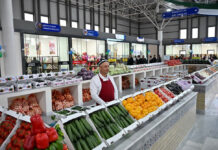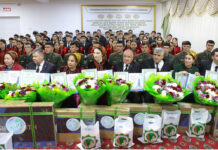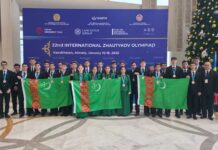A practical training on pattern making and garment construction, focused on men’s shirts, took place in Ashgabat from 17 to 21 November. The International Trade Centre (ITC) under the EU-funded project organized the event with entitled “Turkmenistan: Enhancing Trade Resilience and Integration.” The training brought together 25 specialists from garment enterprises, ateliers and private design studios, who gained access to modern European methodologies applied in the clothing production industry.
The training program included an in-depth study of the German Müller&Sohn method for constructing men’s shirts, covering the full process from building basic blocks and taking measurements to modelling garments. During the first days, participants focused on practical pattern-making, working through the complete cycle: calculating auxiliary measurement indicators, drafting sleeves and collars, analysing fit defects and identifying ways to address them. Additional practical sessions enabled participants to independently carry out the necessary calculations, prepare technical documentation, and refine patterns.
In the final days of the training, participants concentrated on modelling various types of shirts as well as constructing women’s blouses. The program concluded with completed practical assignments and a detailed review of individual questions.
This training was conducted as part of the project’s efforts to strengthen the competitiveness of small and medium-sized enterprises and to develop the export potential of the country’s textile cluster. The transfer of modern skills in pattern making and tailoring not only improves product quality and supports the growth of creative industries, but also expands opportunities for Turkmen producers to access regional and international markets.









